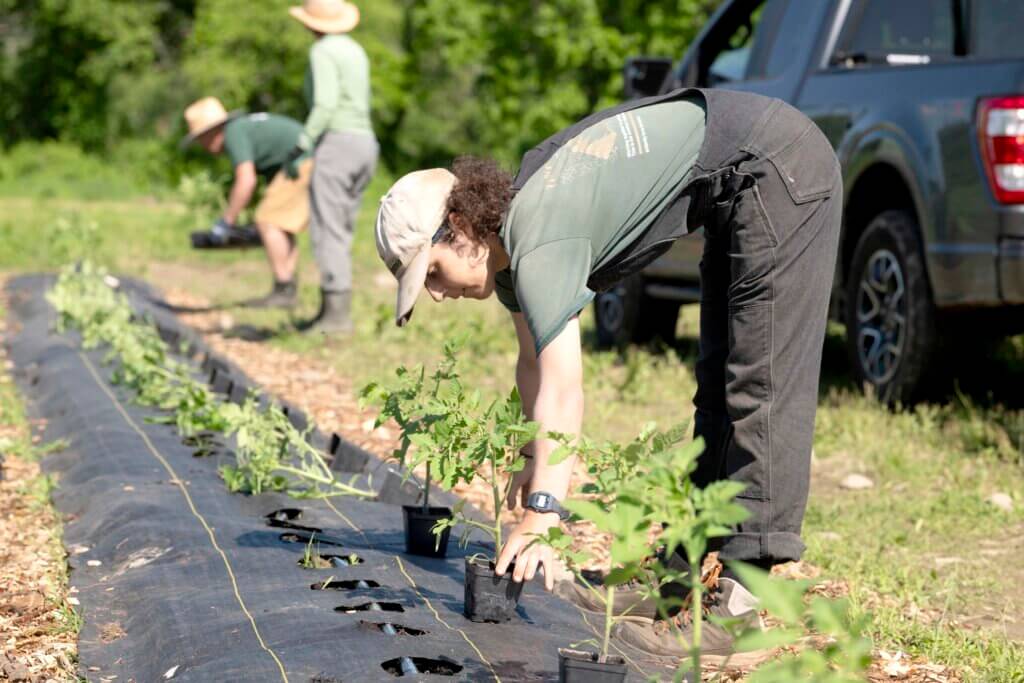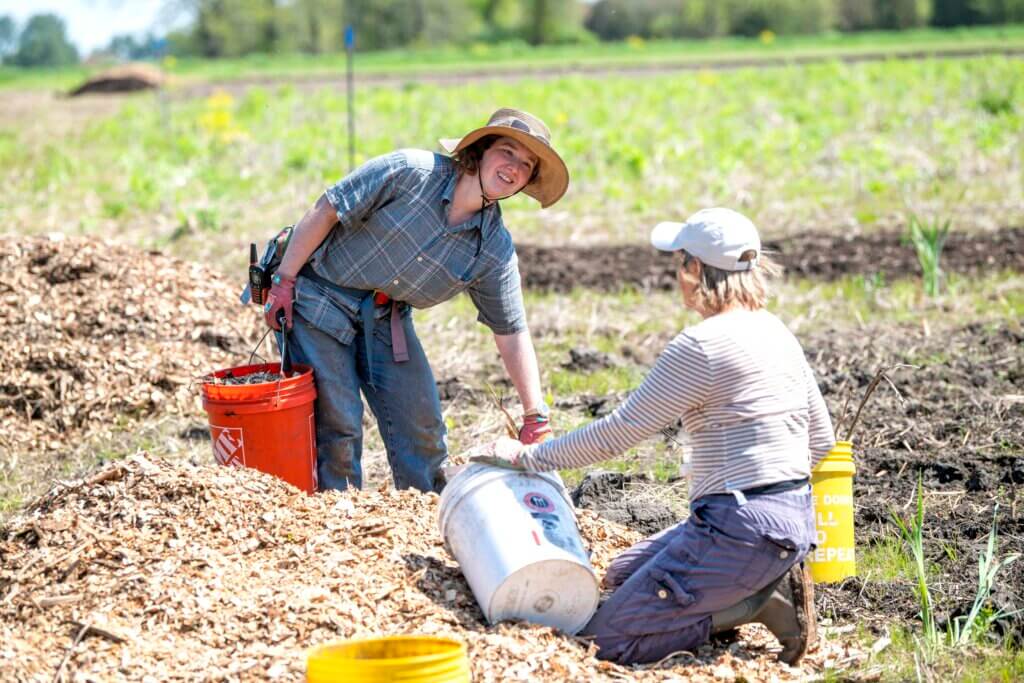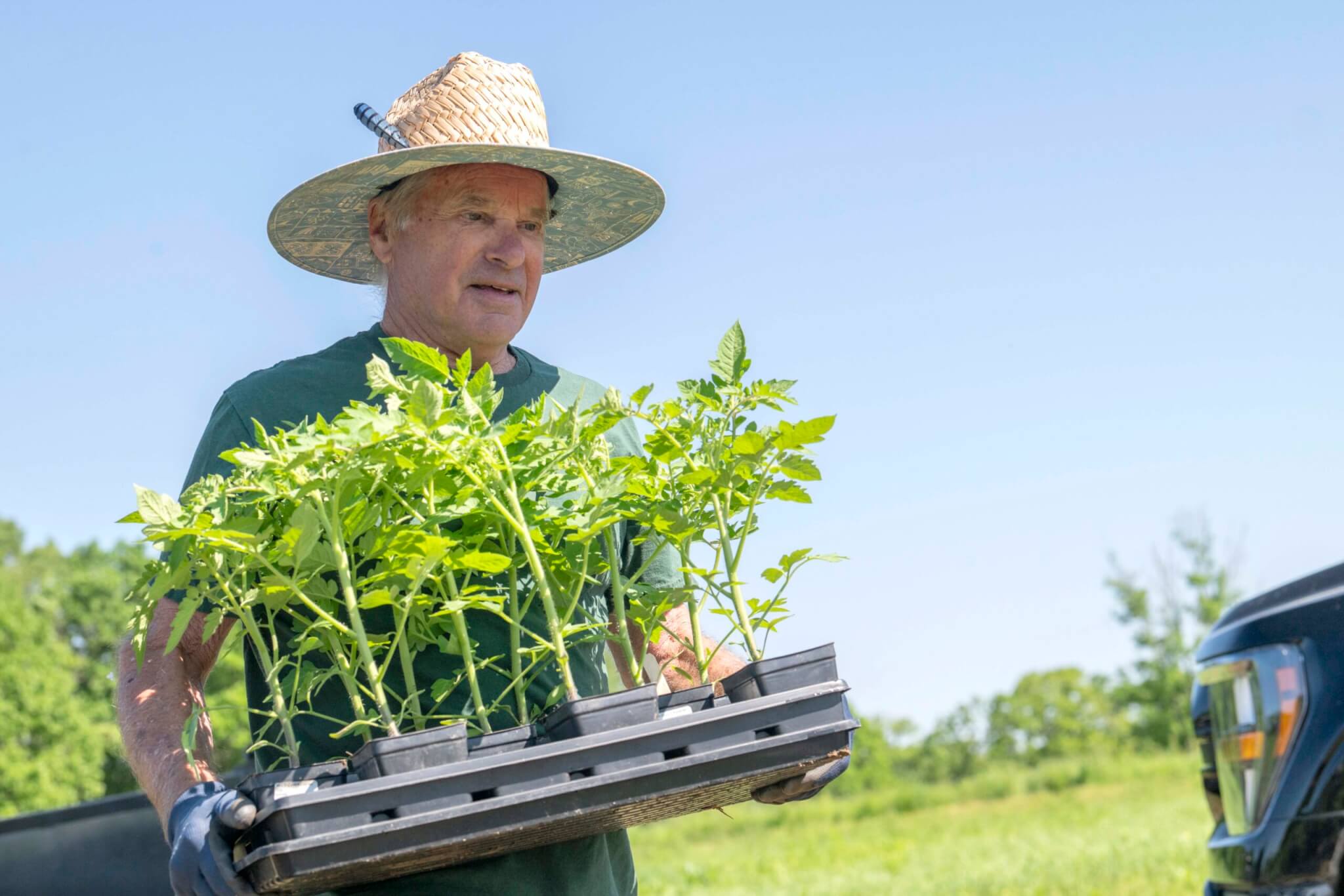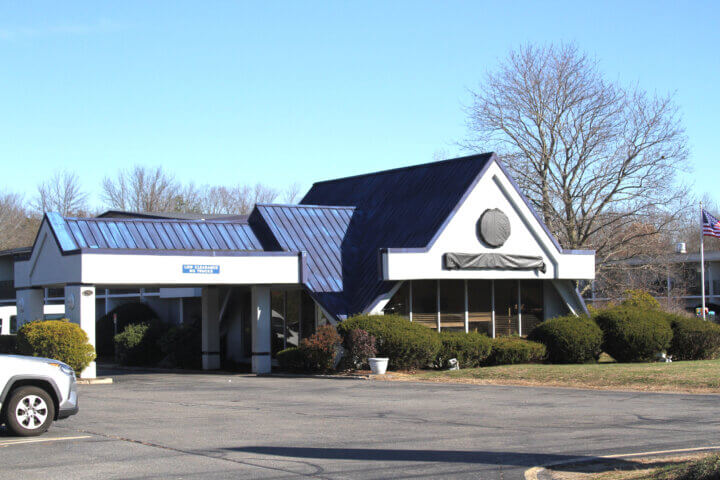By Nathalie McCarthy — Correspondent
The land that is now Minute Man National Historical Park was pivotal in the American Revolution when colonists fought for freedom from oppression. Now, that soil is helping Gaining Ground, a non-profit organic farm, fight food insecurity.
“There was thoughtful and strategic planning to look for land in which to expand,” Gaining Ground Executive Director Jennifer Johnson said. “The timing happened to coincide with an opportunity to license five acres on Lexington Road within the Minute Man National Historical Park close to Battle Road.”
Gaining Ground and Minute Man agreed to a three-year lease agreement.
“[We]… hope on both sides that this will lead to a lease for a longer term,” Johnson said.

A growing garden
The vision of a “soup kitchen garden” was the brainchild of Gaining Ground’s late founder, Jennifer “Jamie” Bemis, who started a garden in her front yard to give away food to those in need.
Thirty years later, through the work of staff and more than 3,000 volunteers, Johnson said the non-profit donates all its crops to an average of 10,000 people annually.
“The foundation of a healthy diet is fruits and vegetables, which are inaccessible to many,” she said. “Access to nutritious food to live a healthy life is a human right and not a privilege.”
When the need for food became greater than what they could grow, Gaining Ground searched for more land — and found it at the historic site.
According to the National Park Service website, the Battle Road trail “passes through fields farmed since colonial times. To restore this agricultural landscape, the park permits farmers to grow hay, vegetables,” and other crops.
“The addition of farmland within the Minute Man National Historical Park will more than double our current footprint, upon which we already grow more than 115,000 pounds of produce for hunger relief each year,” Johnson said on the organization’s website.

Healthy soil, healthy food
Forty to 50 types of organic crops are now grown at the Virginia Road farm. The new location is planned to have a diverse and specialized plan.
The beginning stages of preparing and restoring the soil in the new plot have included planting herbs, tomatoes, parsley, winter squash, and dry beans. Reestablishing the ecosystem’s health also includes planting hedgerows with native plants to attract pollinators and beneficial insects.
“The priority is healthy soil, which can take several years to get to the point of being healthy, with the ideal conditions including a goal of around ten percent organic matter,” Johnson said.
As the town plans for the 250th anniversary of the battles of Concord and Lexington, Johnson said Gaining Ground would like to participate by spreading the word about food insecurity.
“We would also like to use this opportunity to let people know more about regenerative and no-till agricultural practices,” she said.






